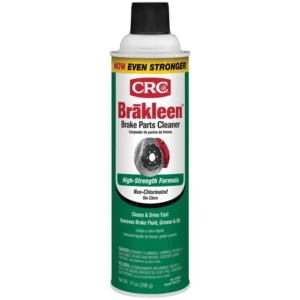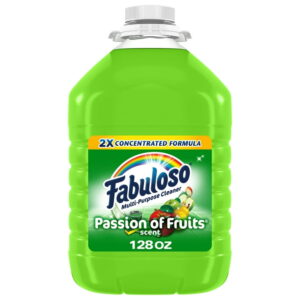Dogs’ mouths are not cleaner than humans. They contain a significant amount of bacteria.
Dogs often lick themselves, animals, and objects, which can lead to infections. Dogs are treasured companions and are often referred to as man’s best friend. They greet us with slobbery kisses, follow us around the house, and happily wag their tails when we return home.
With all the love and affection they give us, it’s no wonder we wonder whether their mouths are cleaner than ours. However, the common assumption is that dogs have a cleaner mouth is untrue. In fact, dogs have a significant number of bacteria in their mouths. While they can protect themselves from the germs, when a person is licked by a dog, it can lead to infections. As a responsible pet owner, it’s essential to practice good hygiene for both your pet and you.
The Science Behind Dog And Human Oral Hygiene
Are dogs mouth cleaner than humans? The science behind dog and human oral hygiene
Plenty of pet owners believe that dog mouths are cleaner than human mouths. Is there any truth to this assumption? Let’s investigate the scientific evidence behind dog and human oral hygiene.
Explanation Of The Differences In The Oral Microbiome Of Dogs And Humans
Dogs and humans have vastly different oral microbiomes, which are the microorganisms living in the mouth.
For instance:
- Dogs have a less diverse oral microbiome than humans.
- The oral microbiome of dogs is ph-neutral, whereas the ph in human mouths is acidic.
- The bacteria in dogs’ saliva are unique to dogs and are not present in humans.
The Role Of Bacteria And Enzymes In Oral Hygiene
Both dogs and humans rely on beneficial bacteria and enzymes to maintain good oral health.
Here’s how:
- Dogs have bacteria in their saliva that help break down food and protect against infection.
- Humans have bacteria in their saliva that help prevent tooth decay and gum disease.
- Enzymes in dogs’ saliva neutralize bacteria and promote wound healing.
The Impact Of Diet And Lifestyle On The Oral Microbiome Of Dogs And Humans
Your dog’s diet and lifestyle can have a significant impact on the oral microbiome, especially when it comes to dental health.
Consider the following:
- Feeding your dog a nutritious, balanced diet can improve their oral microbiome and prevent dental problems.
- Dogs that chew on toys or bones have cleaner teeth and less dental disease.
- Poor dietary choices and lifestyle habits, such as smoking, junk food, and lack of exercise, can negatively impact human mouth flora.
So, are dog mouths cleaner than human mouths? In reality, it’s not a matter of cleanliness, but rather a question of differences in the oral microbiome and how it impacts dental health. To maintain good oral hygiene, both humans and dogs need to take care of their teeth, gums, and overall health.
Dispelling The Myth Of Dog’S Mouths Being Cleaner Than Humans
Have you ever heard the popular myth that dogs’ mouths are cleaner than humans? It’s been around for years and has been the source of much debate among pet lovers and skeptics alike. However, is it actually true? Let’s explore this topic further and delve into the science behind whether dogs’ mouths are actually cleaner than humans’.
Explanation Of How The Myth Started And Why It Persists
The myth that dogs’ mouths are cleaner than humans’ is partially rooted in truth. Dogs have a higher ph level in their mouths, and their saliva contains an enzyme called lysozyme that kills some bacteria. However, other factors need to be taken into account, such as what dogs eat and where their mouths have been.
There is no clear record of how the myth started, but it persists because it’s an easy and relatable statement that many people believe.
Debunking The Idea That Dog’S Saliva Has Special Properties That Make It Clean Or Disinfect
The truth is, while it’s true that dog’s saliva does contain lysozyme, it also contains bacteria and other microorganisms that can be harmful to humans. Additionally, dogs tend to eat things we would consider unsanitary and lick their behinds, which means their mouth has potentially harmful bacteria.
It’s not recommended to rely on a dog’s saliva to clean or disinfect a wound or surface.
- Dogs’ mouths contain a complex mix of bacteria that can range from harmless to harmful to humans.
- While dog’s saliva may be effective in killing some types of bacteria, it can also transfer bacteria from their mouths to humans.
- It is not recommended to use a dog’s saliva in place of proper cleaning and disinfection methods.
The Potential Health Risks Associated With Kissing Or Allowing Dogs To Lick Your Face Or Mouth
While it’s tempting to shower our furry friends with love and affection, there are risks associated with kissing and allowing dogs to lick our faces or mouths.
- Dogs’ mouths contain bacteria that can cause infections such as salmonella and campylobacter.
- Dogs that eat poop or dead animals may transfer harmful bacteria to their mouths, which can then be spread to humans.
- Allowing a dog to lick your face or mouth can transfer bacteria and germs, increasing your risk of infection – especially for children, the elderly, and those with weakened immune systems.
The myth that dogs’ mouths are cleaner than humans’ is not entirely true. While dogs’ mouths contain some bacteria-fighting properties, their mouths also harbor potentially harmful bacteria. It’s important to practice good hygiene and be aware of the potential risks associated with kissing and allowing dogs to lick our faces or mouths.
When it comes to our health and safety, it’s better to err on the side of caution and seek proper medical attention or cleaning methods.
Evaluating The Relative Cleanliness Of Dog And Human Mouths
It’s a commonly held belief that dogs’ mouths are cleaner than humans’, and that kissing a dog is perfectly fine. But is there any truth to this? Let’s take a closer look at the relative cleanliness of dog and human mouths.
Comparing The Bacterial Load And Types Of Bacteria Found In Dog And Human Mouths:
- Dogs’ mouths contain a different set of bacteria than humans’, with a higher prevalence of specific types of bacteria that are not present in humans.
- Humans have more bacterial species in their mouths compared to dogs, but the amount of individual bacteria in dogs’ mouths is much higher than in humans’.
- Both dogs and humans have the potential to harbor harmful bacteria that can cause illnesses.
Explaining The Factors That Contribute To Oral Hygiene In Dogs And Humans:
- In humans, regular brushing and flossing, along with a balanced diet, can help maintain oral hygiene.
- In dogs, factors like diet, chewing habits, and genetics play a significant role in maintaining oral health.
- Dogs that chew on bones or toys regularly are less likely to develop oral health problems.
Examining Different Measures Of Oral Hygiene And How They Vary Between Dogs And Humans:
- Humans have access to a wide variety of dental hygiene products, such as toothbrushes, toothpaste, and dental floss, to help maintain oral hygiene.
- Dogs, on the other hand, have limited options for maintaining their oral health, with dental chews and toys being the most common.
- Regular visits to the dentist are recommended for humans, while annual dental check-ups are recommended for dogs.
While dogs’ mouths may not necessarily be cleaner than humans’, they do contain a different set of bacteria. Both humans and dogs can benefit from proper oral hygiene practices, and it’s important to take care of our oral health to prevent illness.
Oral Hygiene Practices For Dogs And Humans
Ensuring good oral hygiene in dogs and humans is essential for maintaining overall health. Here’s a breakdown of the basic oral hygiene practices for dogs and humans.
Explanation Of Basic Oral Hygiene Practices For Dogs
Taking care of your dog’s teeth isn’t as complicated as it may seem. It involves simple practices such as:
- Brushing your dog’s teeth
- Using water additives and mouthwash
- Feeding a healthy diet
- Providing dental chews and toys
- Regular dental check-ups
The Role Of Dental Cleaning Products, Chews, And Toys In Maintaining Dog’S Oral Hygiene
Dental cleaning products, chews, and toys play a crucial role in maintaining good oral hygiene in dogs. Some examples include:
- Dental chews that help remove plaque and freshen breath
- Teeth-cleaning toys that help scrub teeth while your dog plays
- Water additives that help control bacteria
- Mouthwashes that help reduce plaque formation
Best Practices For Brushing, Flossing, And Tongue Scraping In Humans
Oral hygiene practices for humans are similar to dogs and may include brushing, flossing, and tongue scraping. Here’s how to ensure best practices:
- Brush teeth twice a day
- Floss daily to remove food particles and debris
- Scrape your tongue to remove bacteria
- Choose fluoride toothpaste to strengthen the teeth
Maintaining oral hygiene in dogs and humans is crucial for good health. Regular dental check-ups, brushing, and using dental cleaning products are great practices that promote healthy teeth and gums.
Frequently Asked Questions Of Are Dogs Mouth Cleaner Than Humans
Are Dogs Mouths Cleaner Than Humans?
Dogs’ mouths are not cleaner than humans. Both have bacteria that are species-specific. Dogs’ bacteria can cause infections in humans.
Can I Get Sick From A Dog’S Lick?
Yes, you can get sick from a dog’s lick. It can transmit harmful bacteria like salmonella or cause skin infections.
How Can I Keep My Dog’S Mouth Healthy?
Regular dental care, cleaning teeth and gums, and feeding them a healthy diet can help maintain your dog’s oral hygiene.
Is It Safe To Share Drinks With My Dog?
No, it is not safe to share drinks with your dog. Dogs have different bacteria and can carry harmful diseases that may transfer to humans.
Why Do Dogs Lick Their Own Wounds?
Dogs lick their wounds to clean them, reduce pain, and promote healing. It provides a boost of endorphins and helps repair damaged tissues.
Can Dogs Get Cavities Like Humans?
Dogs can get cavities, but it is not as common as in humans. They are more prone to gum disease and tartar buildup if their teeth are not cleaned regularly.
Conclusion
After an in-depth look and review of research studies, we can conclude that the statement “a dog’s mouth is cleaner than a human’s mouth” is inaccurate and lacks scientific evidence. Although dogs have a different microbiome and enzymes in their saliva, their mouths can still harbor harmful bacteria that can potentially cause infections in both humans and animals.
It’s essential to maintain proper oral hygiene for both pets and humans to prevent the spread of harmful bacteria. With that said, owning a pet is a wonderful experience that provides many benefits, including emotional support, companionship, and improved mental health.
As pet owners, it’s our responsibility to ensure proper care of our furry friends, including their dental health. Regular veterinary check-ups and good oral hygiene habits can help keep our pets healthy and have fresh breath. By doing so, we can create a happy and healthy environment for both ourselves and our beloved four-legged companions.



